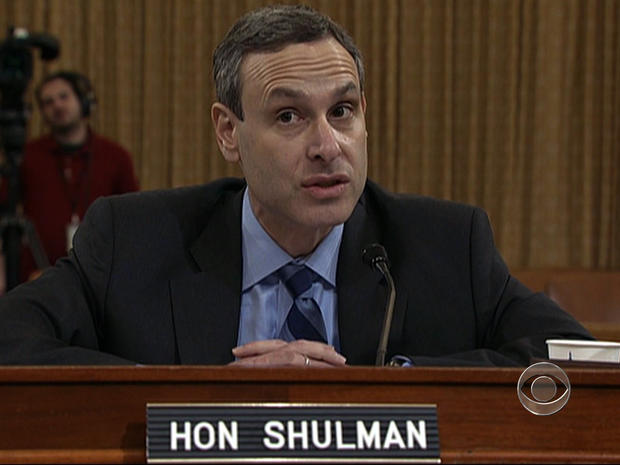IRS apologizes for targeting tea party organizations
(CBS News) WASHINGTON - Tom Zawistowski, head of the Portage County Ohio tea party, applied for tax exempt status with the IRS in 2009.
Along with dozens of tea party leaders across the nation, he complained to the IRS that he was being unfairly targeted.
"It really was a nightmare," said Zawistowski.
He says over three years he was repeatedly asked for more documents, totaling thousands of pages.
IRS official apologizes to tea party groups for "incorrect" scrutiny during 2012 election
Watch: WH: Reported IRS targeting of conservative groups "inappropriate"
IRS recoups $5.5 billion from tax cheats
"They came back with requests for,'Give us a list of all your members, tell us every politician that ever spoke to your group and what they spoke about, give us a list of all the speakers you've ever had speak to your group. Give us a copy of every page of your webpage in paper, print out every page of your Facebook page,'" said Zawistowski.
The IRS strongly denied the charges — until Friday.
At a lawyers' conference in Washington, Lois Lerner, a senior IRS career employee who overseas tax exempt organizations, admitted that agency employees singled out particular groups for extra scrutiny using key words with political overtones.
"They used names like tea party or patriots. And they selected cases simply because the application had those names in the title. That was wrong. The IRS would like to apologize for that," said Lerner.
Lerner's statement contradicts testimony given in March 2012 by then-commissioner of the IRS Douglas Shulman.
"There's absolutely no targeting. This is the kind of back-and-forth process that happens when people apply," said Shulman.
According to the IRS, Shulman, who was appointed by President George W. Bush and has since retired, did not know about the targeting at the time.
In a conference call Friday, Lerner said the targeting was done by low-level employees who were motivated not by partisan politics, but by a desire to be more efficient in identifying groups that don't qualify for tax exempt status, said the IRS in a statement.
"We had a shortcut in the process that the staff did, it wasn't appropriate, we learned about it, we fixed it," said Lerner.
